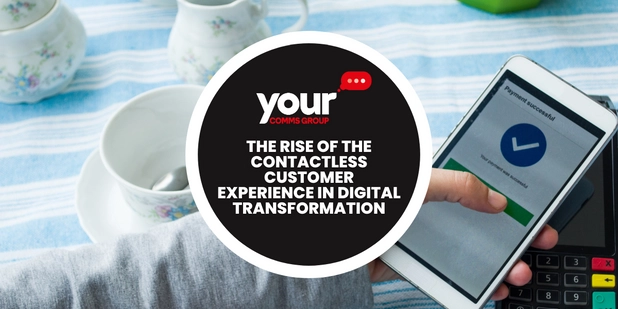The Role of Unified Communications in Digital Transformation
Digital transformation has become a cornerstone of modern business strategies, enabling businesses to adapt to evolving market dynamics, enhance...
2 min read
James Evans : May 29, 2023 6:44:08 PM

In today's rapidly evolving business landscape, delivering exceptional customer experiences has become a key differentiator for companies across all industries. With the rise of digital communication channels and the increasing expectations of consumers, organisations are faced with the challenge of providing seamless interactions across multiple touchpoints. Two popular approaches to achieving this are omnichannel and multichannel strategies. In this blog post, we will explore the differences between omnichannel and multichannel and discuss which one is better suited to support a superior customer experience for your Business needs.
.webp?width=740&height=370&name=omnichannel%20(1).webp)
Multichannel communication refers to an approach where companies interact with their customers through various independent channels. These channels may include phone calls, email, social media, live chat, and more. In a multichannel strategy, each channel operates in isolation, and customers can choose their preferred channel of communication. While multichannel communication allows for a wider reach, it lacks integration and consistency across channels, potentially leading to disjointed customer experience and internal communication battles.

Omnichannel communication takes the concept of multichannel a step further by integrating all communication channels seamlessly. In an omnichannel strategy, the focus is on providing a unified and consistent customer experience across all touchpoints. Whether a customer starts an interaction on social media, then switches to a phone call, and later visits a physical store, the omnichannel approach ensures a smooth transition between channels. This level of integration enables your team to have a holistic view of each customer's journey, resulting in personalised and contextually relevant experiences.

While both omnichannel and multichannel strategies have their merits, you should consider the specific needs of your business's customer base and business goals when deciding which approach to adopt. If providing a consistent and personalised experience across touchpoints is a priority, investing in an omnichannel strategy would be advantageous. However, if reaching customers through multiple independent channels is the primary focus, a multichannel approach may be more suitable.

In the age of digital transformation, delivering exceptional customer experiences is crucial for companies in all sectors to thrive. By adopting an omnichannel strategy, Your Comms Group can leverage the power of integrated communication channels to provide seamless experiences, build customer loyalty, and gain a competitive edge. Understanding the differences between omnichannel and multichannel communication is the first step towards creating a customer-centric approach that aligns with the company's goals and helps maximise customer satisfaction.
For more information or help to decide which approach is best for your business, contact one of our experts from Your Comms Group today to help you with the right decision to give great customer satisfaction!

Digital transformation has become a cornerstone of modern business strategies, enabling businesses to adapt to evolving market dynamics, enhance...

In the ever-evolving world of technology, digital transformation has become a vital component for businesses seeking to thrive and stay ahead of the...

In the dynamic retail industry, digital transformation is pivotal in restructuring operations and customer experiences. Retailers face difficulties...